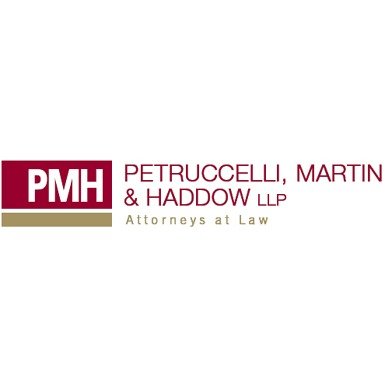Best Restructuring & Insolvency Lawyers in Maine
Share your needs with us, get contacted by law firms.
Free. Takes 2 min.
Or refine your search by selecting a city:
List of the best lawyers in Maine, United States
About Restructuring & Insolvency Law in Maine, United States
Restructuring and insolvency law in Maine deals with the legal processes that help individuals and businesses manage extreme financial difficulties. When debts become unmanageable or when a business is struggling to stay afloat, these laws regulate how assets are handled, debts are repaid or discharged, and what paths may be available for financial recovery. Restructuring typically refers to reorganizing financial affairs to avoid insolvency, while insolvency generally means the inability to pay debts as they come due, often resulting in bankruptcy filings. Frequently, Maine residents and businesses utilize both federal bankruptcy laws and specific state statutes to address financial challenges.
Why You May Need a Lawyer
There are many situations where legal guidance is essential in matters of restructuring and insolvency. Common circumstances include overwhelming debt, persistent creditor collection efforts, the threat of foreclosure or repossession, business cash flow crises, and the desire to negotiate better terms with creditors. A lawyer can guide you through bankruptcy options, help protect critical assets, prevent or delay legal actions such as judgments or garnishments, and work with you on business restructuring plans to help you avoid insolvency. For both individuals and businesses, a skilled attorney can make the difference between an orderly recovery and devastating losses.
Local Laws Overview
In Maine, restructuring and insolvency matters are governed by a combination of federal and state laws. Personal and business bankruptcies are primarily handled under federal law through the United States Bankruptcy Code. Common bankruptcy types include Chapter 7 (liquidation), Chapter 13 (individual debt adjustment), and Chapter 11 (business reorganization). Maine’s state laws cover the collection process, exemptions (property you can protect in bankruptcy), debt collection restrictions, foreclosure procedures, and state court processes for insolvency that fall outside the federal system. Maine provides its own set of exemptions, covering homesteads, vehicles, tools of trade, and certain personal property. Collection agencies in Maine must adhere to both state and federal fair debt collection practices. Local court rules and procedures may also affect timelines and requirements during insolvency proceedings.
Frequently Asked Questions
What is the difference between restructuring and insolvency?
Restructuring typically involves reorganizing your finances or business to become more stable and avoid insolvency. Insolvency means you cannot pay your debts as they become due, which can lead to bankruptcy or court intervention.
What types of bankruptcy are available in Maine?
The most common bankruptcy chapters in Maine are Chapter 7 (liquidation for individuals or businesses), Chapter 13 (individual repayment plans), and Chapter 11 (primarily for business reorganization).
Do I have to liquidate all my assets if I file bankruptcy in Maine?
Not necessarily. Maine allows exemptions that let you protect certain assets, such as a portion of your home equity, personal property, retirement accounts, and vehicles.
Can creditors continue to call me after I file for bankruptcy?
Once you file for bankruptcy, an automatic stay goes into effect, which generally stops most collection actions, calls, wage garnishments, and lawsuits by creditors.
How long does a bankruptcy stay on my credit report in Maine?
A Chapter 7 bankruptcy can remain on your credit report for up to 10 years, while a Chapter 13 bankruptcy generally stays for up to 7 years.
Can small businesses in Maine restructure without bankruptcy?
Yes, small businesses may work directly with creditors for informal restructuring, negotiation of debts, or may consider alternatives like assignments for the benefit of creditors under Maine law.
Are there alternatives to bankruptcy in Maine?
Alternatives include debt settlement, credit counseling, repayment plans, voluntary liquidation, and negotiation with creditors outside the court system.
Will I lose my home if I file for bankruptcy in Maine?
You may be able to keep your home, depending on its value and the exemptions you claim. A bankruptcy attorney can help you understand your options under Maine’s homestead exemption.
How are business assets treated in insolvency proceedings?
Business assets may be liquidated to pay creditors in a Chapter 7 case, or can be retained and restructured under Chapter 11. The treatment depends on the type of bankruptcy and the business structure.
How do I know which insolvency solution is right for me?
Selecting the best solution depends on your specific debt situation, the types and amounts of assets you own, your income, and your goals. Consulting with a knowledgeable attorney is the most effective way to explore your options.
Additional Resources
- Maine Judicial Branch: Offers forms and self-help information for state court processes. - United States Bankruptcy Court for the District of Maine: Handles most bankruptcy filings and holds relevant local rules and guides. - Pine Tree Legal Assistance: Provides legal help for qualifying Maine residents, including bankruptcy and debt issues. - Maine State Bar Association: Can assist with lawyer referrals and general information. - Bureau of Consumer Credit Protection (Maine Department of Professional and Financial Regulation): Handles complaints against collection agencies and offers consumer education.
Next Steps
If you are facing serious debt issues or considering restructuring or bankruptcy in Maine, consider the following steps:
- Gather detailed information about your debts, assets, income, and expenses. - Keep copies of all correspondence from creditors and any legal notices. - Review your finances and consider what your immediate needs and long-term goals are. - Schedule a consultation with a qualified restructuring and insolvency attorney who practices in Maine. - Take advantage of free or low-cost resources mentioned above for initial guidance. - Act quickly, as delays can reduce your options and affect your legal rights.
Seeking early legal advice will help protect your assets, ensure compliance with all relevant laws, and may offer solutions before your situation becomes critical. An experienced attorney can help you explore bankruptcy, restructuring options, and possible alternatives to get a fresh financial start.
Lawzana helps you find the best lawyers and law firms in Maine through a curated and pre-screened list of qualified legal professionals. Our platform offers rankings and detailed profiles of attorneys and law firms, allowing you to compare based on practice areas, including Restructuring & Insolvency, experience, and client feedback.
Each profile includes a description of the firm's areas of practice, client reviews, team members and partners, year of establishment, spoken languages, office locations, contact information, social media presence, and any published articles or resources. Most firms on our platform speak English and are experienced in both local and international legal matters.
Get a quote from top-rated law firms in Maine, United States — quickly, securely, and without unnecessary hassle.
Disclaimer:
The information provided on this page is for general informational purposes only and does not constitute legal advice. While we strive to ensure the accuracy and relevance of the content, legal information may change over time, and interpretations of the law can vary. You should always consult with a qualified legal professional for advice specific to your situation.
We disclaim all liability for actions taken or not taken based on the content of this page. If you believe any information is incorrect or outdated, please contact us, and we will review and update it where appropriate.
Browse restructuring & insolvency law firms by city in Maine
Refine your search by selecting a city.












